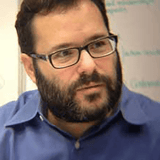Summary
This session is intended to be messy and will leave you with more questions than you came in with. We shall start off by asking ourselves “what are you pretending not to know?” This question inspired by African-American scholar and activist Toni Cade Bambara will guide us into the conversation. How do we understand our role as researchers? In what ways are we complicit in reproducing structural inequities and systemic harm? This manifesto is centered around 3 “big” themes: At what and whose cost do we engage in research? What right do I have to engage in this research work? What if I refused to participate? This is an invitation to get intimate with ourselves and investigate the privilege(s) we hold as researchers and designers. Reflecting on the power imbalances that exist, how can we move toward a culturally thriving and sustainably empowering approach to emancipatory research that centers minoritized communities? Asking these questions and sitting with their complexities is urgent and necessary. Together, we strive for less extractive, decolonial, and anti-capitalist visions for research that are rooted in liberatory harm reduction, relationship building and community empowerment.
Key Insights
-
•
Empathy should be considered the floor, not the ceiling, in research practice.
-
•
Researchers must recognize and reckon with the oppressor role embedded within themselves.
-
•
The money pipeline, including sources and compensation methods, deeply influences ethical research.
-
•
Time is a weaponized social and cultural currency that can perpetuate harm in research.
-
•
Research should reject mining metaphors and instead honor the full humanity of participants.
-
•
Distinguishing between right and entitlement is crucial for responsible research engagement.
-
•
Communal proximity does not guarantee the right to represent or engage in certain research.
-
•
Trauma experience should not be used as a gatekeeping tool or justification for research involvement.
-
•
Agency includes the choice to refuse participation and reclaim control in research settings.
-
•
Safe spaces in research are problematic; focusing on harm reduction and restorative practices is preferable.
Notable Quotes
"The true focus of revolutionary change is never merely the oppressive situation we seek to escape but the piece of the oppressor that lives in all of us - Audre Lorde."
"If you walk in someone else’s shoes, then you’ve taken their shoes - Wendy Hill Count Chun."
"Time itself has been commodified and weaponized to reproduce systemic harm and inequities."
"This is not a mining operation; humans are not gemstones waiting to be extracted."
"Do I have a right to engage in this work or do I feel entitled to it? Often it’s both."
"Communal proximity does not guarantee the right to engage or represent an entire community."
"Choosing to remain silent is still a choice - agency always exists in research participation."
"Safe spaces tend to harbor privilege because they make some people feel safer than others."
"We all have the capacity to cause harm, whether intentional or not, and thus responsibility for harm reduction."
"Much of the work of oppression is policing the imagination, conditioning us to believe we’ve lost rights or power - Ida Hartman."
Or choose a question:
















More Videos
"There’s never enough attention you can give to change management in scaling design impact — don’t do it alone."
Standardizing Product Merits for Leaders, Designers, and Everyone
June 15, 2018

"Building a map is like learning to play chess—you have to see the board to decide your move."
Simon WardleyMaps and Topographical Intelligence (Videoconference)
January 31, 2019

"There’s a gap between intentions and impact; humility is needed to close it."
Sandra CamachoCreating More Bias-Proof Designs
January 22, 2025

"When fellow co-workers label an individual as difficult, it’s hard not to treat that person as a problem."
Darian DavisLessons from a Toxic Work Relationship
January 8, 2024

"Stakeholder communication is crucial to professional strategy because without it, we run the risk of activity without impact."
Fisayo Osilaja[Demo] The AI edge: From researcher to strategist
June 4, 2024

"Creating tangible artifacts forces reaction and debate, helping break enterprise paralysis and drive decisions."
Uday GajendarThe Wicked Craft of Enterprise UX
May 13, 2015

"Relying on a single content strategist was a strategic mistake that created a single point of failure."
Davis Neable Guy SegalHow to Drive a Design Project When you Don’t Have a Design Team
June 10, 2021

"People were very adverse to changes because a small 0.5% conversion increase meant millions in revenue."
Eniola OluwoleLessons From the DesignOps Journey of the World's Largest Travel Site
October 24, 2019

"Most of us in design are very process-oriented, but traditional devops tools are task and issue-centric, making collaboration hard."
Aurobinda Pradhan Shashank DeshpandeIntroduction to Collaborative DesignOps using Cubyts
September 9, 2022
















